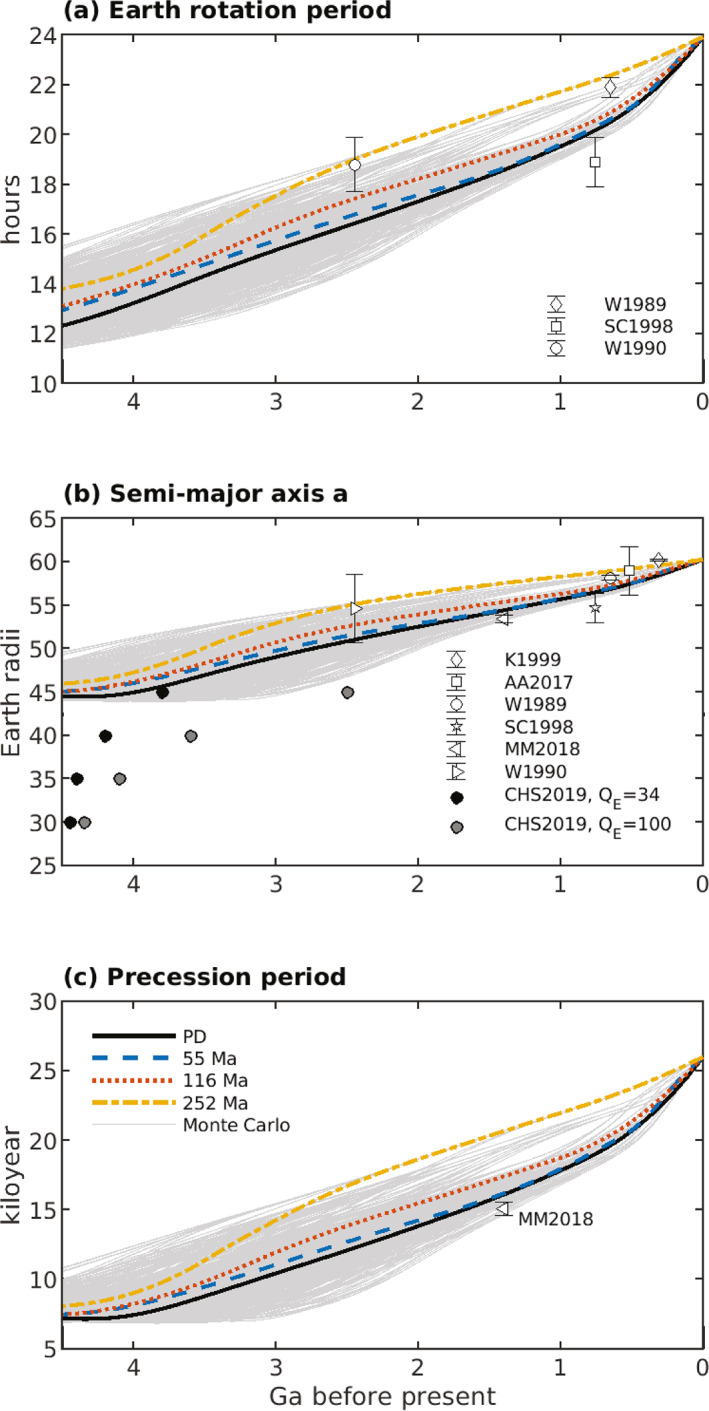Figure 6.

Modeled (a) rotation period , (b) semi‐major axis , and (c) Milankovitch precession period , where , the “fundamental precession,” or “precession of the equinoxes,” is given by Equation 36 over 4.5 Ga. Four of the orbital dynamics results (see legend in (c)) are obtained with ocean tide values taken from simulations that assume fixed basin geometries (see Figure 1) over time. The 1,000 Monte Carlo realizations (gray curves) employ lists in which, for each value of (see Section 4), the ocean tide value is chosen randomly from one of the four different paleogeographies. Tidal rhythmite estimates in (a–c) are tabulated in Table 7. The black and gray filled circles in (b) represent the results of simple “constant‐Q” forward models of early Earth‐Moon system tidal evolution as calculated by Ćuk et al. (2019, their Table 1) with two different values (34 and 100, respectively) of the early Earth tidal quality factor .
